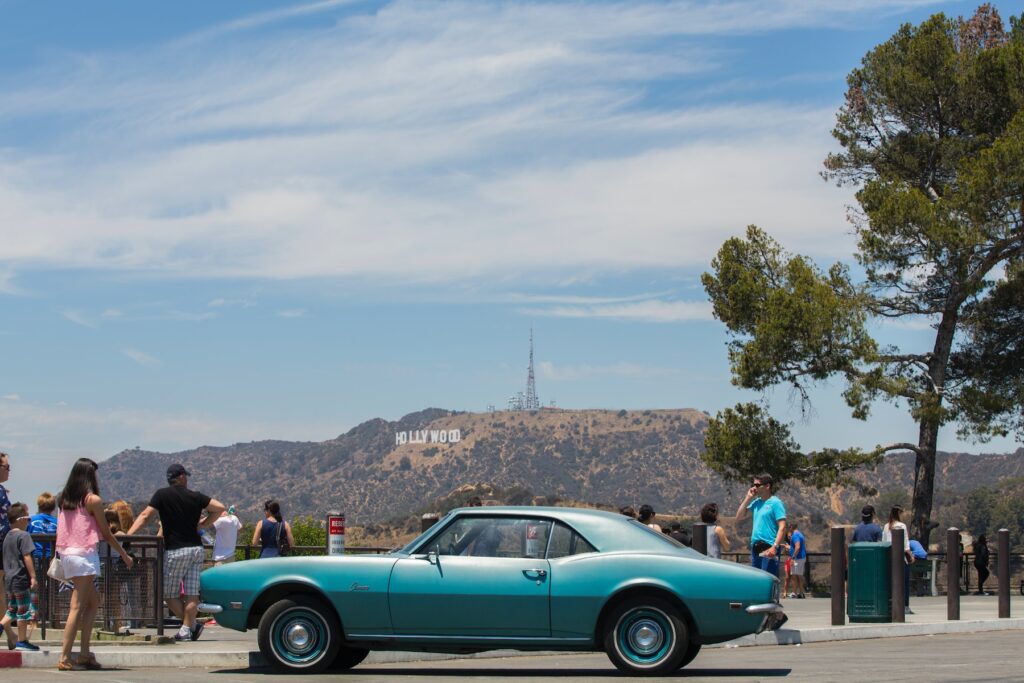
Shipping a car from Los Angeles to Houston is a popular choice for many individuals relocating, buying vehicles, or simply looking to avoid long, exhausting road trips. These two major cities are separated by approximately 1,500 miles, a drive that can take nearly 24 hours of non-stop travel. Opting for professional car shipping services allows people to avoid the hassle of long-distance driving while ensuring their vehicles are transported safely and efficiently. This article will explore the various factors involved in shipping a car between these cities and highlight why Navi Auto Transport is the go-to choice for this service.
Summary
Understanding the Distance and Challenges
Shipping a car from Los Angeles to Houston covers around 1,500 miles, a long stretch of highways that includes various terrains, climates, and logistical considerations. The route primarily traverses I-10, a major interstate that cuts across California, Arizona, New Mexico, and Texas. While this interstate ensures a relatively direct path between the two cities, there are still challenges that can arise, from weather disruptions to traffic congestion.
One of the main obstacles in shipping vehicles across such a distance is timing. Factors such as road construction, detours, and heavy traffic along the route can cause unexpected delays. Furthermore, varying weather conditions—particularly in the desert regions—can impact transport schedules. Temperatures can reach extremes, potentially affecting transport vehicles, and storms can slow down deliveries. This makes it essential to choose a car shipping company experienced with long-distance routes.
Navi Auto Transport excels in overcoming these challenges. With years of experience managing cross-country shipments, we use our in-depth knowledge of the route to preemptively address potential delays, ensuring vehicles are delivered on time. We also keep our clients informed throughout the shipping process, providing real-time updates on the status of their vehicle and any changes to the schedule.
Choosing a car shipping service with expertise in navigating the unique challenges of the Los Angeles to Houston route can save time, reduce stress, and ensure peace of mind. Navi Auto Transport is well-equipped to handle these logistics, offering a seamless, worry-free experience for customers.
Open vs. Enclosed Auto Transport: Which is Right for You?
When shipping a car from Los Angeles to Houston, one of the most important decisions is choosing between open and enclosed transport. Each method has its advantages, and the best option largely depends on the type of vehicle and the customer’s specific needs.
Open car transport is the most commonly used method for car shipping. In this setup, vehicles are loaded onto a multi-car carrier, exposed to the elements. Open transport is the most cost-effective option, making it popular for standard vehicles and those who need a budget-friendly solution. While the cars are exposed to weather conditions and potential road debris, professional carriers take every precaution to ensure the safety of the vehicles during transit. For many customers shipping everyday cars, open transport is a reliable and affordable choice.
Enclosed car transport, on the other hand, provides a higher level of protection. Vehicles are transported inside a fully enclosed carrier, shielding them from rain, dust, and road debris. This option is ideal for luxury, classic, or high-value cars where additional protection is a priority. Though more expensive, the peace of mind that comes with knowing your vehicle is fully protected can be worth the investment, especially for rare or expensive cars.
Pricing Factors for Shipping from Los Angeles to Houston
The cost of shipping a car between Los Angeles and Houston can vary widely depending on several key factors. Understanding these pricing factors can help customers make informed decisions and find the best balance between cost and service.
One of the main factors affecting price is distance. The roughly 1,500-mile trip from Los Angeles to Houston is a significant journey, and the longer the distance, the higher the shipping cost. However, long-distance routes like this often benefit from competitive pricing due to the frequency of shipments on popular interstates such as I-10.
Another major factor is vehicle type. Larger vehicles such as SUVs, trucks, and vans typically cost more to transport than smaller sedans. This is because they take up more space on the carrier and may require additional fuel due to their weight. Additionally, modified or non-operational vehicles can increase the price because they require special equipment for loading and unloading.
The shipping method—whether open or enclosed auto transport—also influences the cost. As discussed in the previous section, open car transport is the most affordable option, while enclosed transport offers premium protection at a higher price. Customers shipping high-end or vintage cars often choose enclosed transport for added security, which comes with a higher fee.
Finally, seasonality plays a role in determining car shipping prices. Certain times of the year, such as summer and winter holidays, see higher demand for car shipping services. During these peak periods, prices can increase due to limited availability. On the other hand, shipping during off-peak times can result in lower rates.
How Long Does It Take to Ship a Car?
The time it takes to ship a car from Los Angeles to Houston depends on several variables, but the average duration is typically between 3 to 5 days. This timeline reflects the approximately 1,500-mile distance and the logistical considerations involved in transporting vehicles across such a long stretch.
The type of transport used—whether open or enclosed—can impact the speed of delivery. Open carriers tend to operate more frequently, meaning cars may be picked up and delivered faster. However, enclosed carriers, often dealing with fewer vehicles and more specific requests, might take slightly longer to schedule and complete the transport.
Weather conditions are another key factor in determining shipping time. The route between Los Angeles and Houston passes through diverse terrains, including deserts and areas prone to seasonal storms. Adverse weather, such as heavy rain or extreme heat, can slow down carriers, resulting in slight delays.
The overall availability of carriers can also affect the time it takes to ship a car. During peak seasons—such as summer months and holiday periods—more vehicles are being shipped, which might cause minor delays in pickup or delivery schedules. On the flip side, shipping during off-peak times often results in faster service.
Successfully Shipping a Car from Los Angeles to Houston
The Customer’s Concerns
A recent case involved a client who needed to transport a classic 1965 Mustang from Los Angeles to Houston. The customer was concerned about the car’s safety due to its value and vintage status, as well as the potential for delays during the shipping process.
How We Delivered on Time
We handled the shipment with precision and care. We recommended enclosed transport to ensure the Mustang was protected from weather and road debris. Our team conducted a thorough pre-transport inspection to document the car’s condition and address any potential issues. We also provided the client with a detailed shipping schedule and real-time updates throughout the journey.
The enclosed carrier was equipped with specialized features to securely transport classic cars, and our logistics team carefully planned the route to avoid potential delays. We took into account weather forecasts and road conditions to ensure the Mustang arrived safely and on time.
Outcome and Customer Satisfaction
The Mustang was delivered to Houston without any issues, arriving in pristine condition. The customer was highly satisfied with our service, praising the attention to detail and the proactive communication. The successful delivery reinforced the client’s confidence in our team, and they have since referred us to other classic car enthusiasts in their network.
Solutions to Common Issues During Shipping
Shipping a vehicle from Los Angeles to Houston can involve several challenges. Here’s how common issues are addressed to ensure a smooth shipping experience:
Unexpected Delays
Delays can arise from various factors like traffic congestion, road closures, or weather conditions. To manage these potential setbacks, carriers continuously monitor weather forecasts and traffic reports. Keeping in touch with drivers helps address any delays promptly and keeps customers informed about the status of their shipment.
Damage Prevention During Transport
Vehicle damage is a major concern for many shippers. To minimize this risk, proper handling and secure loading are crucial. For enclosed transport, padded interiors and secure tie-downs protect vehicles from potential damage. A thorough pre- and post-transport inspection ensures that any issues are documented and addressed.
Handling Special Requirements
Some vehicles may have unique needs, such as being non-operational or having special modifications. Specialized equipment is used for loading and unloading non-operational vehicles, and any special considerations are carefully managed to ensure safe transport.
Resolution of Issues
If problems occur during the shipping process, quick resolution is essential. Customer service teams are available to handle concerns and provide solutions, whether it’s expediting delivery or resolving minor issues. Prioritizing customer satisfaction ensures that any problems are addressed efficiently.
If you want to ship a car this month, leave a comment below
We’re here to make the process as smooth as possible. Leave a comment below if you’re ready to ship your car this month, and we’ll get back to you promptly with all the details.
